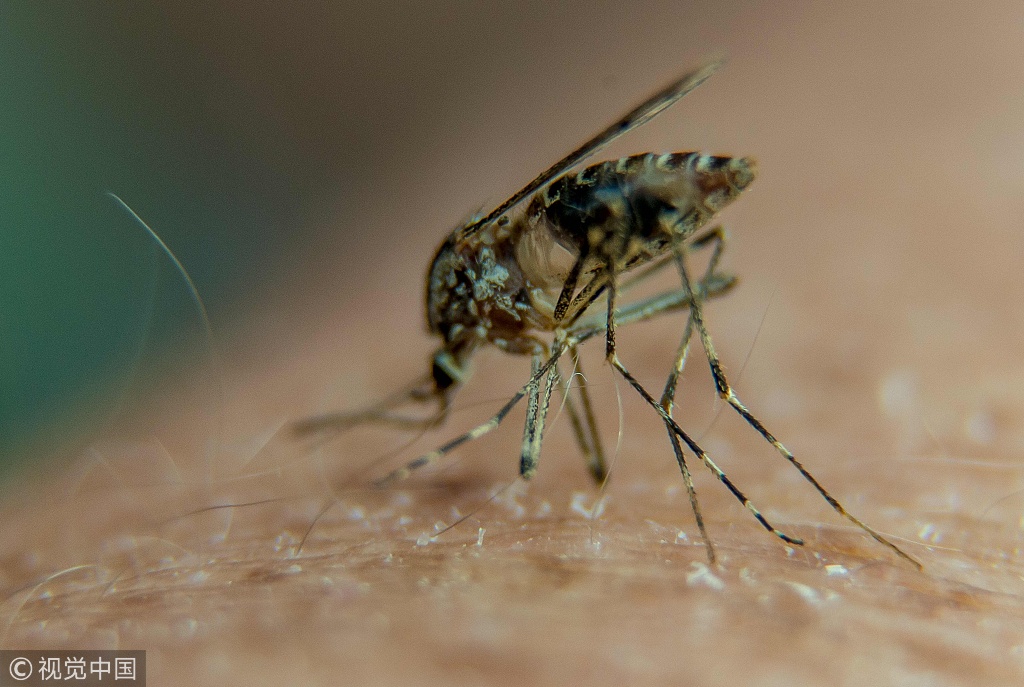Chinese team hunts down malaria in Comoros
Xinhua | Updated: 2018-04-25 09:39

NAIROBI -- Comoros, a small African country located in the Indian Ocean, is pursuing a total annihilation of malaria, five years after a Chinese-backed project drove out the lethal disease from its two islands.
The archipelago nation, which controls three islands of Grande Comore, Moheli and Anjouan and claims sovereignty over Mayotte Island under France's administration, is currently discussing collaboration to achieve that goal in three years together with Chinese scientists, who confirmed this to Xinhua ahead of the World Malaria Day that falls on Wednesday.
The Chinese team hopes that the Comoros victory, using a Chinese-developed drug and an unconventional approach, can pave a new trail for the battle against this mosquito-borne disease.
Malaria kills about half a million people every year in the world, with Africa claiming some 90 percent of the casualties. Comoros, however, is among the few African nations that now seem ready to shake off this stigma.
Song Jianping, who heads the visiting team from Guangzhou University of Chinese Medicine (GZUCM) of southern China, said that they aim to help Comoros annihilate malaria by 2020. Researchers from GZUCM helped administer the 2007-2013 projects with medicines donated by China.
They will pinpoint the remaining infection areas and apply small-scale mass drug administration (MDA), said Song, director of GZUCM's Tropical Medicine Institute.
For many residents in Comoros, malaria and the horrors it invokes are already becoming a fading memory.
Nassurddine Houssen, 51, remembered how his parents used to spend every evening worrying about the cost of buying mosquito coils. Malaria kills a child every two minutes.
"During my childhood, I knew many friends (who were) killed by the mosquito disease (malaria)," said Houssen, a resident of Anjouan Island. "My younger sister nearly died from it."
"Children died, and we did not know exactly why. Many parents thought it was because of the demon," said Echat Malide, director of Anjouan's Hombo Hospital, recalling a time when malaria affected two thirds of Comoros' population of 800,000 and was the top killer disease on the islands off Africa's southeastern coast.
The tides of change began in 2007, when a team of Chinese scientists introduced an anti-malaria project to the island of Moheli before extending it to Anjouan in 2012 and Grande Comore in 2013. On the three islands, it led to a 98-percent drop in malaria cases, from over 100,000 to 1,300 a year, said Chinese Ambassador to Comoros He Yanjun.
Unlike traditional methods of killing mosquitoes and preventing mosquito bites, the project asked residents to simultaneously take medicine to flush out the malaria parasites in a procedure called MDA.
It builds on the concept that mosquitoes are vectors passing the parasites from person to person. Therefore, if the human "source" is purged, the mosquitoes will have no bugs left to pass on.
Five years after the project, Comoros' two islands of Moheli and Anjouan are today considered malaria-free. Officials said that all 16 cases in 2016 were "imported". The island of Grande Comore, where the MDA participation rate was lower than the two islands, recorded 1,641 cases in 2016.
























